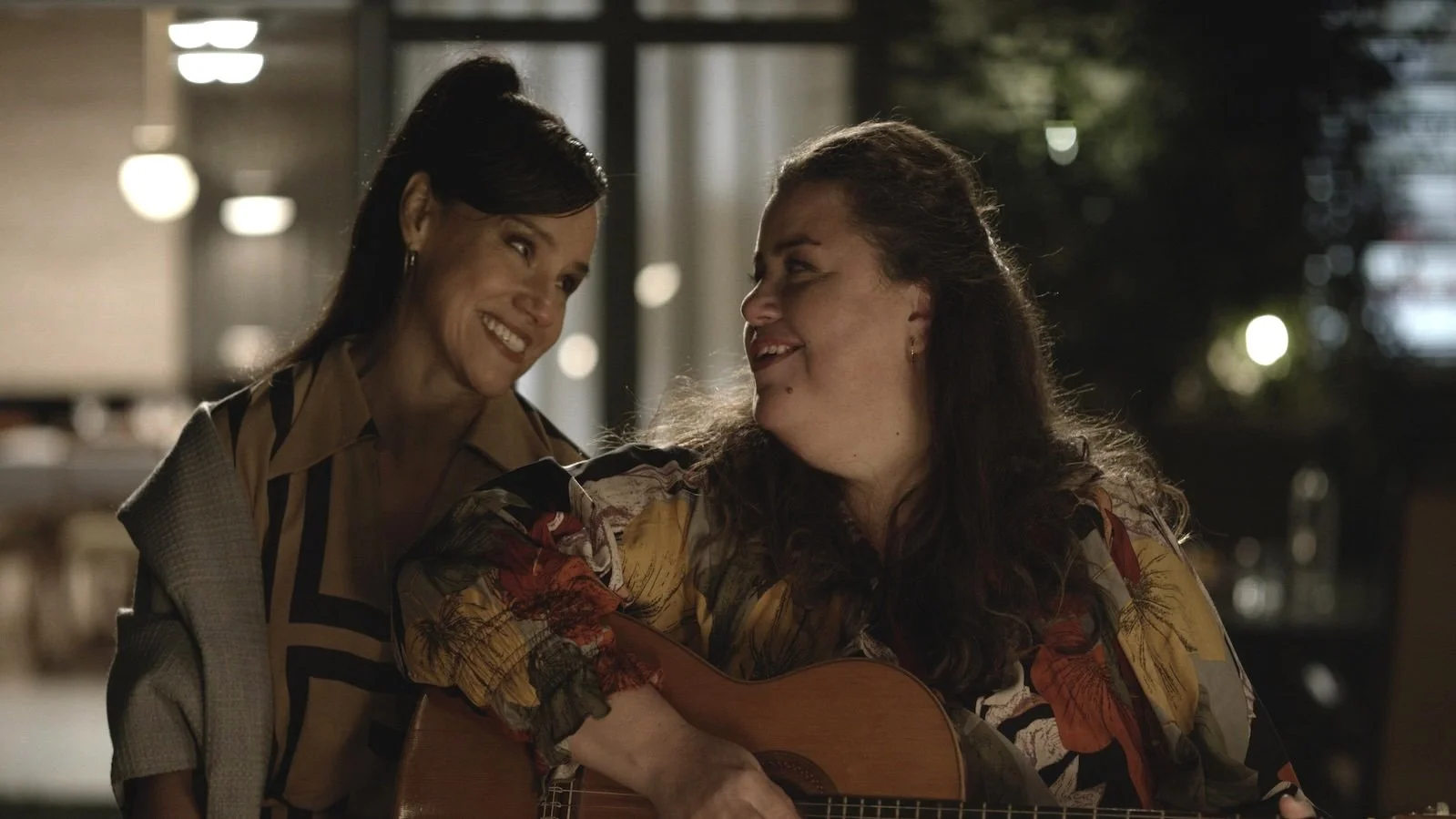It is even more poignant that Miguel expresses this sentiment as he is HIV positive. Many drugs have been created that prevent HIV from being the life-destroying disease it once was. This becomes important as when the last member of the group to arrive, Germán (Osmar Núñez), walks in, he needs to know that there is hope on the other side of the diagnosis. There is life with HIV and for many of these characters who lived through the first years of the epidemic, that was almost never the case.
So the grim reaper is there, but it does not claim a soul. It’s mainly there to claim a relationship. It is obvious from the outset that the heterosexual couple will not last. Writer Gustavo Pecoraro never punches down at Ricardo, but shows him as many straight men are. Ricardo does not understand why human society should be more inclusive in the language we use to define ourselves. He does not understand the idea that two people can be in love, but may need to seek physical affection with other people. He does not understand his wife as a whole human being in the slightest.
It is not that he cannot change, it is that he will not change until things begin to affect him directly. There is nuance in the character even if he continues to be obtuse about everyone else in the world. The nuance is written on Edgardo Moreira's face.
Many spectacular performances are found in Blue Lights. The ensemble is superb. The highlight is Estrela Garelli as Mabel. Mabel opens up when she is with her old friends. She finds who she wants to be going forward within the conversation around her.
There is one particular scene that cements Garelli as the stand out. After Edgardo (Javier Rodríguez Cano) and Pedro (Claudio Da Passano) compliment her hair, she confesses Ricardo did not even notice. Edgardo and Pedro come to Ricardo's defense, but the crack in the foundation is there. Mabel makes her way to the bathroom and she looks in the mirror for a moment. She pulls her hair back and lets it go. The whole thought process plays out on her face as she has a moment of realization. Garelli's expressions are so vivid that it is a sort of roadmap for how she will let the rest of her evening go. We can see on her face what Mabel is about to do.
Blue Lights feels like it would function far better as a play than a film, but it has the urgency of ensemble dramedies that have come before it, which makes it a very worthy watch. The editor, Marcela Truglio, really times reaction shots well and she pulls it off with aplomb. The film also never feels heavy handed when it tackles the tough topic of HIV and even gives hope to what Germán can only see as tragedy. Blue Lights is an enjoyable watch filled with many laughs and just as many heartbreaking and beautiful moments.
